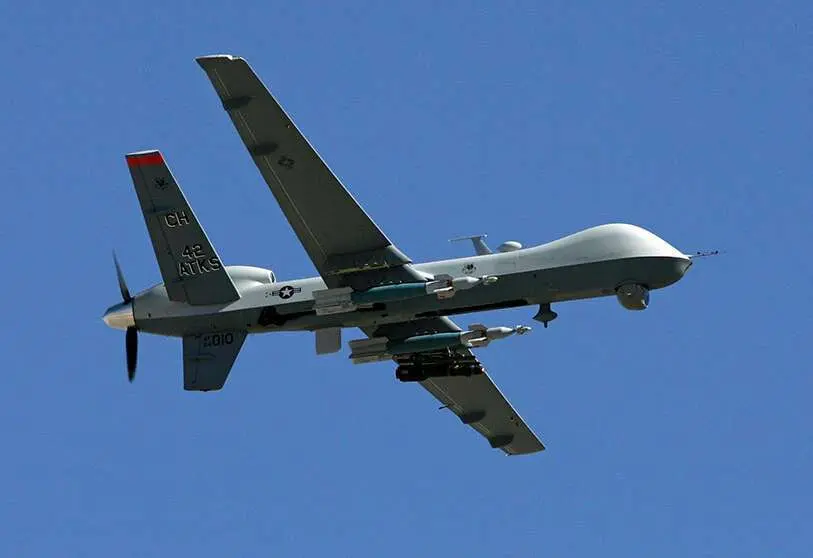UAE increases investment in drones and smart weapons

Emirati arms manufacturers are boosting investment in unmanned armed systems technology. Earlier this week, the Abu Dhabi UMEX unmanned systems exhibition took place, showcasing UAE-based Edge Group's drones and other smart weapons, such as remote-controlled machine guns. The exhibition was attended by 134 companies from 26 countries around the world, including first-time participants Bahrain, Israel, Serbia, Austria, Bulgaria, Malta and Turkey.
The participation of these countries is evidence of the great importance of drones and smart weapons in today's conflicts. So much so that these weapons have posed a security threat to the United Arab Emirates in recent months in the face of Houthi attacks, killing three people in Abu Dhabi.

This trend in the use of drones is something that Emirati arms manufacturers have seen as an investment opportunity. "Automated systems are becoming more prevalent around the world, and this is a sector we are investing heavily in", stressed Miles Chambers, business development director at The Edge Group, saying that its production is focused on unmanned systems, electronic warfare and smart munitions.
The Edge Group, which was established three years ago by the merger of 25 Emirati companies specialising in arms manufacturing, has achieved $4.8 billion in arms sales by 2020. The group's contracts have recently doubled and the majority have been contracted by the United Arab Emirates. These figures have made the group 23rd among the world's 100 largest arms and military services producers that year, according to the Stockholm International Peace Research Institute.
The owner of another Emirati company, Ahmed al-Mazrouei, which mainly develops military robots, said that "the UAE's defence is ready to face the challenges in the wake of the attacks claimed by the rebels". He also said that his company's goal was to enable more systems and technologies over the next ten years to "compete globally".
Alongside this increased investment, Emirati companies plan to expand their presence around the world to address threats, including the most significant threat to the region from Houthi rebel attacks. The Saudi-led Arab coalition reported rebel attacks using more than 850 booby traps, drones and 400 ballistic missiles over the past seven years, killing 59 civilians.

But the internationalisation of the Emirati arms manufacturing company is established by recent attacks and conflicts in various countries and regions of the world. One of these is off the coast of Oman, when the US and Israel accused Iran of attacking an Israeli-led ship with a drone. This came at the same time that Iraq's prime minister, Mustafa al-Kazemi, survived an attack by pro-Iranian militias in his country. Israel also killed an Iranian nuclear scientist with a remote-controlled machine gun. And just this week, the Israeli army announced that its air defences had fired on a drone from Lebanon that had entered Israeli airspace, adding to another such incident in two days.
This is why the Edge group has reported that multiple agreements have already been signed with foreign companies, such as Lockheed Martin and Raytheon of the United States. The normalisation of relations with Israel has also been key to ongoing cooperation in the fields of military industrialisation.








